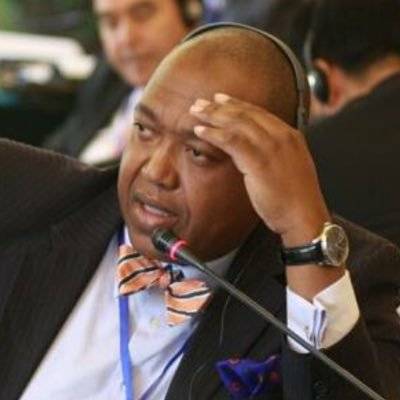Shia Islam, like many religious sects, continues to be polarised by political opinion. This has in history led to further sub-divisions of Shia Islam. Notwithstanding, there is still an insistence to present Shia Islam as a bloc. This insistence has consequently invited a blanket of disdain for Shia Islam in general particularly in the Gulf.
Saudi Arabia has been the main instigator in this regard. It has also in some instances managed to exploit the rifts between Shias for its own political ambitions. It has, for an example, extended invitations to Muqtada Al-Sadr, whose “electoral bloc came first in the May 2018 elections”. He has been very vocal on his views against Iran’s political involvement inside Iraq.
According to the state news agency SPA, “Sadr, who last visited Saudi Arabia in 2006, attended ‘discussions of common interest’ during his trip to the Red Sea port city of Jeddah”. The meeting was an attempt to polarise Iraqi Shia support of Iran and its politics.
Saudi’s anti-Shia rhetoric has influenced a large part of international public opinion. It has subsequently turned Iran, the international sponsor of Shia Islam, into a bogeyman that should be confronted by all Sunni Muslims. It insists on the dangers Iran presents to Sunni hegemony. However, Saudi Arabia is less interested in the preservation of Sunni Islam but more concerned about safeguarding its national interests. Its political legitimacy is by and large dependent on its continued perception as the upholder of Sunni interests and protector of Islam in general.
Read: Basra is being torched to save Iran from US sanctions
The Saudi anti-Iran/Shia campaign has not been without glitches. It has made serious political misjudgments including leading what has become one of the greatest man-made catastrophes in Yemen and blockading the state of Qatar after accusing the Houthis in Yemen and the Qataris respectively of cosying up to Iran.
Furthermore, it established a close relationship with the state of Israel against Iran, a decision that backfired against the country in terms of public opinion. The relationship between the two has consequently shifted focus from Israel, the “main culprit that continues to create political instability in the region”.
Over the past week the youth of Basra, Iraq have been engaged in protests demanding political reforms in the country. Like many such protests in the recent past, there is a sense that people wish their actions would spread into other parts of the region who are experiencing similar grievances against their governments. The Iraqi protests are not only directed at their government, they are also directed at Iran. The protesters have accused Iran of over involvement in their political affairs and indirectly “supporting their incapable government”.
Reuters reports that “after five days of deadly demonstrations in Basra in which government buildings have been ransacked and set alight, protesters broke in and damaged the consulate’s offices, shouting condemnation of what many perceive as Iran’s sway over Iraq’s political affairs”. Ayatollah Al-Sistani, the ultimate authority for devout members of Iraq’s Shia majority and Muqtada Al-Sadr have made pronouncements in support of some of the protesters’ demands.
Read: Idlib offensive set to deepen Iran-Russia divide in Syria
Notwithstanding the insistence by Saudi Arabia to present Shia Islam as a bloc, as alluded to in the first paragraph of this article, the protests in Basra indicate the contrary. Moreover, they also highlight an important factor seldom discussed in the media, i.e. the schism between Arab and Iranian/Persian Shias. This has repeatedly impacted the interactions between the two from time immemorial. Understanding this is important because it debunks the myth peddled mainly by Saudi Arabia that there is a collective Shia modus operandi against the Arabs and Sunnis. It also highlights another important factor, that there is a sizeable Arab Shia community, something often overlooked at least by the outside world.
The dominant view outside the Muslim world is to equate Shiism with Iran, never with Arabs. The schism between Arab and Iranian/Persian Shia Muslims permeates deep into culture and tradition as well. Dr. Liqaa Maki, an Iraqi scholar at Al Jazeera Centre for Studies in Doha, argues that this could be further explained by simply observing marriages. Arab Shia families hardly allow their daughters to marry into Persian Shia families, that is the ultimate form of mistrust. There are also other historic factors that have added to the mistrust including occasional elements of xenophobia and racism between the Persians/Iranians and Arabs. Cultural differences and languages also further compound this mistrust.
Suffice to say the ongoing protests and political positions embraced by both Sistani and Al-Sadr in this regard demonstrate a measured shift in Shia politics in Iraq. It shows an element of policy independence of Iraq from what has been viewed as “Iran backed foreign policy,” particularly after the demise of Saddam Hussein. Finally, these uprising expose the cracks in the so-called Iranian “expansionists project” in the Gulf and they put to the test the perceptions about Iran as the ultimate authority on everything Shia in the region.
The views expressed in this article belong to the author and do not necessarily reflect the editorial policy of Middle East Monitor.

![People gather in front of the governor's building to stage a protest in Iraq’s oil-rich Basra province on 5 September 2018 [Haider el Esedi/Anadolu Agency]](https://i0.wp.com/www.middleeastmonitor.com/wp-content/uploads/2018/09/Demonstrations-in-Iraqs-Basra20180905_2_32223583_36951834.jpg?fit=920%2C613&ssl=1)







